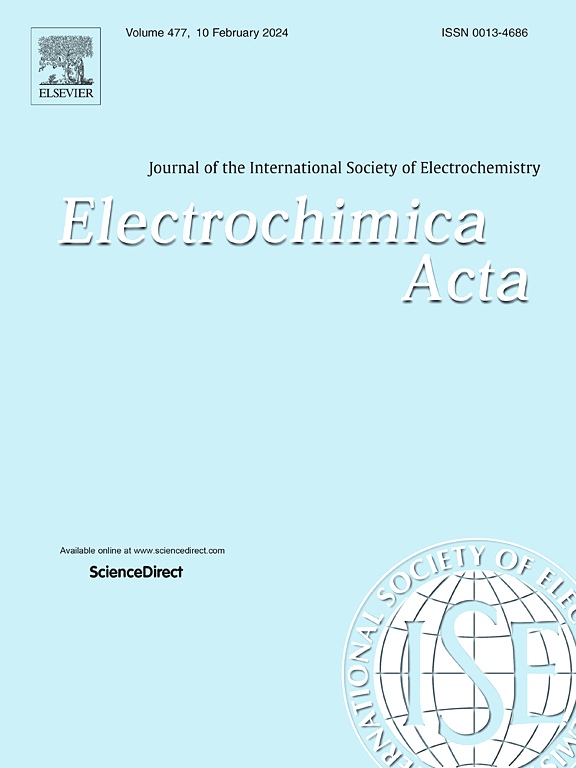Economical Iron-nickel Bimetallic Electrocatalysis Enhanced Chlorine Evolution for Ammonia Removal in Wastewater
IF 5.5
3区 材料科学
Q1 ELECTROCHEMISTRY
引用次数: 0
Abstract
The electrocatalytic removal of ammonia nitrogen (NH4+-N) in wastewater is a promising technology for water treatment, but the high cost and limited catalytic efficiency of traditional electrodes present challenges. This study introduces a novel iron-nickel composite oxide electrode (FeNiO/GP) supported on graphite, achieving breakthrough performance in NH4+-N wastewater remediation. It was exhibited dual enhancement in chlorine evolution reaction (CER) selectivity and oxygen evolution reaction (OER) suppression, as evidenced by an exceptional 0.212 V potential gap between OER (1.48 V) and CER (1.27 V). Through systematic optimization, the electrode demonstrates unparalleled removal efficiencies of 99.56% NH4⁺-N and 92.09% TN within 40 minutes under controlled conditions, maintaining robust performance (88.68% NH4⁺-N, 70.52% TN removal) in real industrial wastewater. Mechanistic investigations reveal a self-sustaining chlorine cycle where in situ generated active chlorine species drive ammonia oxidation. This work establishes a new paradigm for non-precious metal electrocatalysts in sustainable wastewater treatment, achieving high reaction kinetics with lower energy consumption. The FeNiO/GP electrode as an effective and low-cost solution for ammonia nitrogen removal, offering significant potential for practical wastewater treatment applications.

经济铁镍双金属电催化强化氯析出法去除废水中氨
电催化脱除废水中的氨氮(NH4+-N)是一项很有前途的水处理技术,但传统电极的高成本和有限的催化效率给其带来了挑战。本研究介绍了一种新型的石墨负载铁镍复合氧化物电极(FeNiO/GP),在NH4+-N废水的修复中取得了突破性的性能。OER (1.48 V)与CER (1.27 V)之间存在0.212 V的电位差,表明该材料对氯析出反应(CER)选择性和氧析出反应(OER)抑制具有双重增强作用。通过系统优化,该电极在可控条件下40分钟内的NH4 + -N去除率为99.56%,TN去除率为92.09%,在实际工业废水中保持了88.68%的NH4 + -N去除率和70.52%的TN去除率。机械研究揭示了一个自我维持的氯循环,其中原位生成的活性氯物种驱动氨氧化。本研究为非贵金属电催化剂在可持续废水处理中的应用建立了一个新的范例,实现了高反应动力学和低能耗。FeNiO/GP电极作为一种高效、低成本的氨氮去除解决方案,在实际废水处理应用中具有巨大的潜力。
本文章由计算机程序翻译,如有差异,请以英文原文为准。
求助全文
约1分钟内获得全文
求助全文
来源期刊

Electrochimica Acta
工程技术-电化学
CiteScore
11.30
自引率
6.10%
发文量
1634
审稿时长
41 days
期刊介绍:
Electrochimica Acta is an international journal. It is intended for the publication of both original work and reviews in the field of electrochemistry. Electrochemistry should be interpreted to mean any of the research fields covered by the Divisions of the International Society of Electrochemistry listed below, as well as emerging scientific domains covered by ISE New Topics Committee.
 求助内容:
求助内容: 应助结果提醒方式:
应助结果提醒方式:


